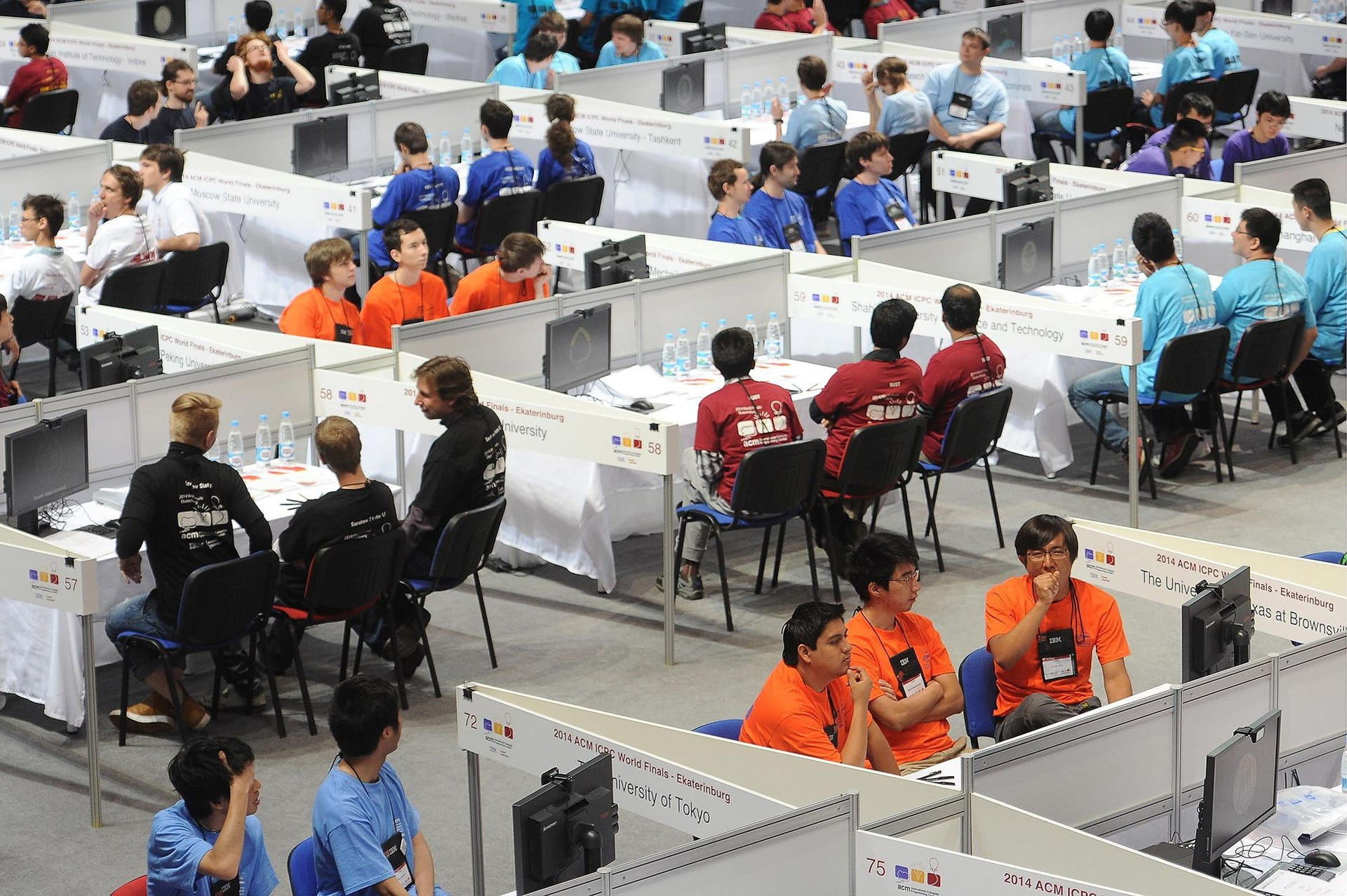Russian students dominate programming contests and American students are not surprised

When Alexander Iverson, was in the first classes of school, he learned about the subtraction and the procedure. Despite the fact that his answers in the classroom and homework solutions were almost always correct, the teacher did not recognize them as such.
What is the reason? In his more efficient method of calculus - essentially, he invented the concept of negative numbers (his class had not yet passed them), and then reorganized the procedure for action in accordance with his method, that is, he went against the instructions of the teacher.
')
Iverson is now a senior research scientist who teaches computer science at one of the South Dakota High Schools (SDSMT), and he also participated in the "Olympics on computer programming among universities in the world."
“It was terrible,” he said. "In fact, I came up with a method that performed the tasks better than the one I was taught and for that I was punished."
According to Iverson, this experience is an excellent example of a problem with mathematics and computer science in America, this problem clearly manifested itself on May 24, when the 41st Annual International University Programming Championship took place in Rapid City.
From about 9:00 to 23:00, almost 400 of the world's best young programmers, consisting of 133 teams, each with three people from 44 countries, competed among themselves. Each of the teams present has already passed through regional competitions, in which 46,381 students from 103 countries participated.
After about 5 hours, the results became known.
The first place was taken by the Russian team from the St. Petersburg National Research University of Information Technologies, solving 10 problems as soon as possible. This is the fourth victory of the Russian school since 2012.
Four other teams from Warsaw University, Seoul National University, St. Petersburg State University and the Moscow Institute of Physics and Technology also solved 10 problems. In general, the Russian and Chinese teams took 9 of the 14 highest positions. The University of Central Florida ranked 13th, the Massachusetts Institute of Technology took the 20th place.
“Money is a unit of concern and it seems that we care more about keeping prisoners in prison than about training,” said Iverson.
Iverson added that one of the main reasons he excelled in an area where there are no other American students is explained in his self-study outside the school.
Matthew Schallencamp, 20, SDSMT Information Technology Associate and Iverson's teammate, said his first acquaintance with computer programming happened when he came across a programming textbook at the library of his high school in South Dakota.
“We really didn’t have good computer science training programs,” said Schallenkamp.
Both men agreed that the main reason for the success of Russia and China was simple: they begin to learn programming concepts much earlier than the Americans.
Larry Payitt, a professor of mathematics and computer science at the South Dakota School of Technology and trainer at the SDSMT team, argues that this is not always the case.
“Many of these programs were reduced, whereas in the 80s I had computer programming in high school for two years and later, when I entered college, it was a huge advantage for me,” said Larry, who occupied Third place in ICPC World Finals in 1989.
Earlier this year, Payitt, along with Schallenkamp and five other students, went to Russia in a training camp to prepare for the competition. The difference in the teaching of exact sciences became clear to him.
“By the time schoolchildren in Russia finish school, they have already been trained in the basics of mathematical analysis and are programming,” said Payitt. - It turns out that they start preparing for the study of exact sciences at the university about four years earlier, and until recently every schoolchild in Russia had to study mathematical analysis in order to get a higher education diploma and therefore they give to mathematics and exact sciences in general, much more attention than our schools. "
Now in the media there are many new stories about the activities of hackers from Russia and the interference of the Russian state in foreign elections. Executive Director of the International University Programming Contest on programming, William Poucher, said that the former contestants are not related to hacking activities.
ICPC Director Jeff Donahu: “The key to the future is opportunities and how we create these opportunities for people to create, not destroy.”
Regarding the issue of improving the educational system, Poucher said the answer is simple: “All you need to do is to invest more. Anyone who says that the problem is not money ... just cunning. The most important thing is to invest in education. Invest in children. Invest in parents.
Iverson argues that education is like a red-hot frying pan for politicians. They touch it, they burn it, and after that they no longer touch it. In his opinion, changes in principles and approaches to training can yield positive results today, and an increase in investment is hardly worth the wait.
“We have very weak incentives and they are not pushing teachers and schools to optimize learning. Everything goes the same way: teachers teach in the old manner, and students also acquire knowledge and skills in the same way, ”Iverson said, explaining how standardized tests affect curriculum content and determine successful schools, successful teachers and students.
Returning to his first clashes with the American system of teaching mathematics, Iverson added that he had learned a very important lesson for himself, although not the one he wanted to teach him.
"We are trying to discourage learning, to find a new, interesting way to do something, to figure out how to use it effectively, and then put it into practice," he said. "I think that if it was encouraged and rewarded, it would be interesting for students to learn."
Source: https://habr.com/ru/post/331364/
All Articles